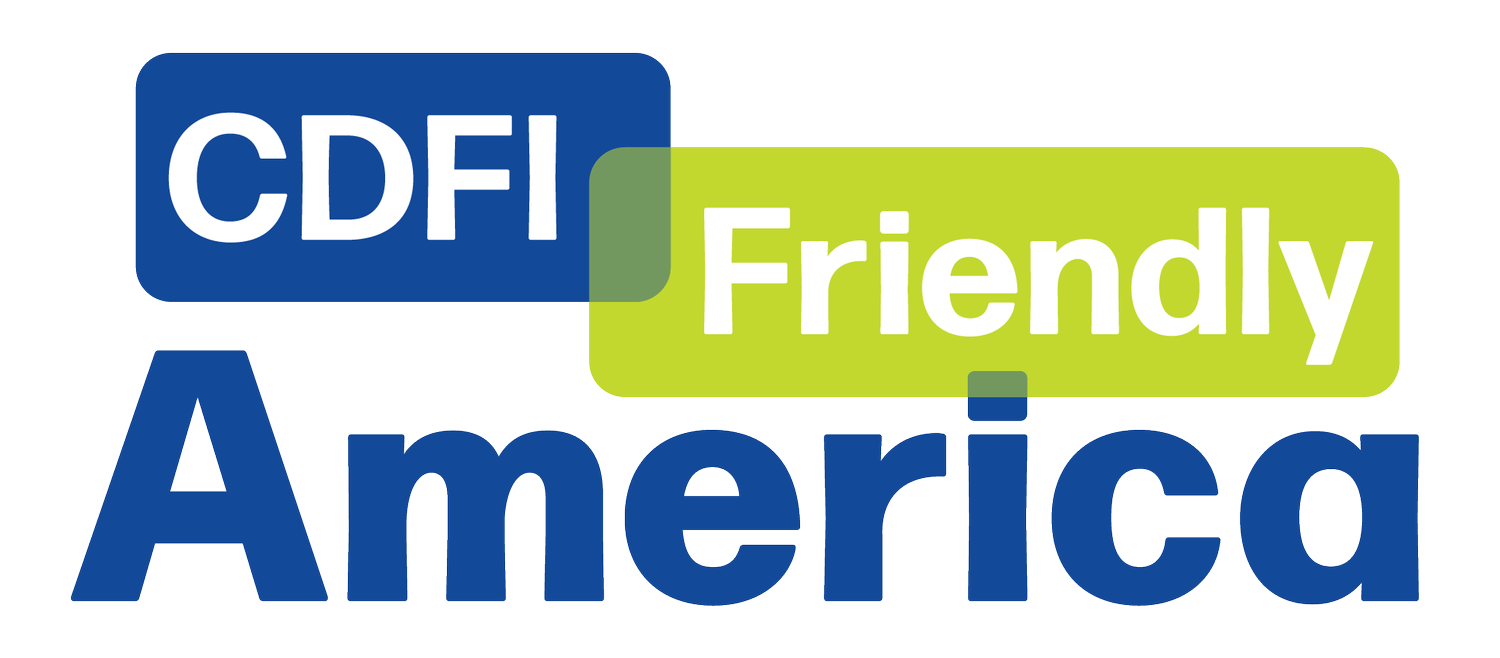About Mark Pinsky, CDFI Friendly America’s President & Founder
Mark Pinsky is the President and Founder of CDFI Friendly America (CFA). Mark has an impressive history of more than 35 years working to develop, promote, scale, and bring resources to the CDFI industry.
Mark Pinsky is the President and Founder of CDFI Friendly America (CFA). Prior to forming CDFI Friendly America, with Adina Abramowitz, his late business partner, Mark served as the President & CEO of Opportunity Finance Network (OFN) for 21 years.
Mark has an impressive history of more than 35 years working to develop, promote, scale, and bring resources to the CDFI industry. In his free time, he enjoys reading, watching (Philadelphia!) sports, swimming, and spending time with his family. Mark is guided, both in his personal and professional life, by his deep involvement with Judaism. As a volutneer, he serves as Treasurer and Board member for Reconstructing Judaism.
Mark was born in Bristol, Pennsylvania. His mother became an English teacher and his father was a writer and editor. Both of his parents were civil rights advocates and organizers. He attended Oberlin College in the late 1970s as an English major. After college, Mark worked on clean energy policy for Ralph Nader, and joined the staff of Congressman Ted Weiss (D-NY) in October 1980 on the cusp of the Reagan revolution. He moved to New York and worked for several years on an environmental health publication. In 1987, he joined the Democracy Project, as Editor of a policy transition book for the 1988 Democratic candidate, Governor Michael Dukakis. That work introduced him to many leading progressive thinkers, including little-known Arkansas Governor, Bill Clinton.
In late 1988, Mark met Martin Paul Trimble, who was running the NACDLF (National Association of Community Development Loan Funds), which is now known as Opportunity Finance Network. Mark was impressed by Trimble’s work organizing the burgeoning community development finance industry, and he began assisting him him on communications and public policy.
In August 1992, when Presidential candidate Bill Clinton said he would create a national network of (what would later be called) community development financial institutions, Trimble asked Mark to get involved with a policy working group of CDFI leaders. Right after the election of President Clinton in 1992, NACDLF had their annual conference in Boston where Trimble and other industry leaders set in motion the Ad Hoc Coalition of Community Development Financial Institutions (now known as The CDFI Coalition). Soon after, the group asked Mark to be the Coordinator and, eventually, the Executive Director.
By year-end 1992, the Coalition produced an industry changing white paper, “Principles of Community Development & Proposals for Key Federal Support.” Through consistent advocacy and a lot of luck, the paper made it to President-elect Clinton’s desk and served as the foundation for what became the CDFI Fund. Mark stayed at The CDFI Coalition through the enactment of the Riegle Community Development and Regulatory Improvement Act of 1994, which authorized the CDFI Fund.
In February 1995, Mark became President & CEO of NACDLF while remaining Chair of the CDFI Coalition. He led NACDLF and the CDFI industry through the start-up of the CDFI Fund, remarkable annual growth greater than 30% year over year, two rebrandings , and the Great Recession of 2008. In his time at NACDLF (which became OFN in 2005), he led the organization’s work on:
Creating the Equity Equivalent investment product
Influencing the CDFI Fund to use NACDLF’s Performance-based Financing Model for its Financial Assistance Programs,
Shaping the 1995 Community Reinvestment Act (CRA) rules to include CDFIs
Advocating with Native Leaders for the Native Study that led to current Native programs at the CDFI fund,
Enacting the New Market Tax Credit program and later the CDFI Bond Guarantee Program at the CDFI Fund,
Reshaping the CDFI industry through the transformative 1993 “Grow, Change, or Die” strategy,
Establishing The NEXT Awards recognizing the next generation of leading CDFIs,
Developing and implementing the AERIS Ratings System,
Engaging non-bank corporations and consumers through the Create Jobs for USA campaign with Starbucks,
Working with Wells Fargo to design and implement its groundbreaking Diverse Community Capital Program, and
Rallying the CDFI industry to recommit itself to racial economic justice in a series of speeches, program changes, and practices between 2012 and 2016.
In 2016, Mark left OFN and planned to take a break from the CDFI sector. That only lasted until 2017 when he received a call from then Mayor of Bloomington, Indiana, John Hamilton. A CDFI industry pioneer himself, Hamilton had just been elected and wanted Mark’s help creating a CDFI in Bloomington. Working together with Community Foundation of Bloomington president Tina Peterson, they developed the first CDFI Friendly community. CDFI Friendly Bloomington was designed as a nonprofit hub to connect local developers, business owners, nonprofits, and residents who need alternate financing options to CDFIs that are based elsewhere.
Mark invited his career-long colleague, Adina Abramowitz to help in Bloomington, and together they formed CDFI Friendly America in 2020. CDFI Friendly America was created to address a long-standing challenge in the CDFI industry–the number and size of CDFIs were growing but there are still many places that have little to no access to CDFIs.
Mark, Adina, and the growing CDFI Friendly America team went on to create CDFI Friendly South Bend, CDFI Friendly Fort Worth, CDFI Friendly Tulsa, and CDFI Friendly Evansville Region between 2021-2024. Sadly, Adina passed away unexpectedly in December 2023, five months before her planned retirement. Mark decided to continue to pursue the work they had started together despite the loss of his business partner and friend.
Mark is currently working to develop new approaches for CDFI Friendly America. He envisions a time in the not-too-distant future when there will be 50, 100, or even 1,000 CDFI Friendly places in the U.S. Mark has been a fervent and inspirational leader in the CDFI industry since 1989. He continues to work for equitable community development, fair access to capital, and a CDFI Friendly America.

